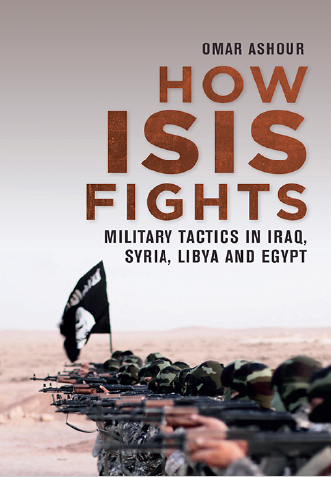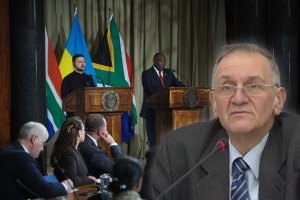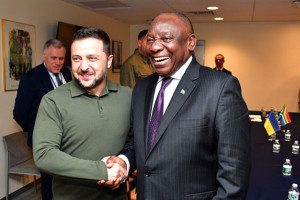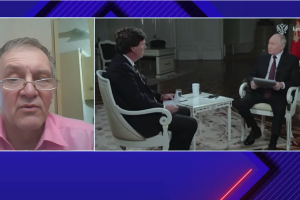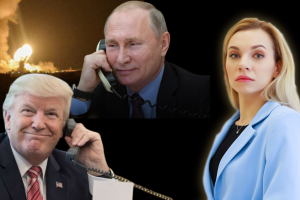Why Russia fights like ISIS and how to de-Putinize liberated youth ІІ Omar Ashour
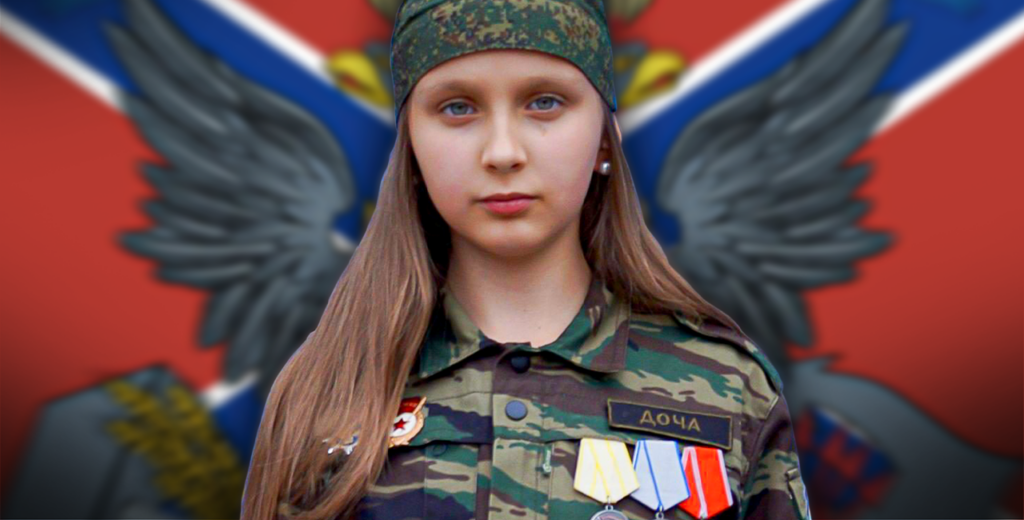
Security expert Omar Ashour identifies alarming similarities between Russia’s military operations in places like Crimea and Donbas and the playbook extremist organizations like ISIS have deployed: infiltration, improvised explosives, false-front organizations, weaponized disinformation. For young people in occupied zones undergoing such intense psychological warfare, Ashour recommends tailored Ukrainian deradicalization programs integrating emotional, educational, and vocational support.
Euromaidan Press met with Dr. Omar Ashour, security and military studies professor at the Doha Institute for Graduate Studies in Qatar, Non-resident research fellow at the Democratic Initiatives Foundation, at the Crimean Global Conference in Kyiv.
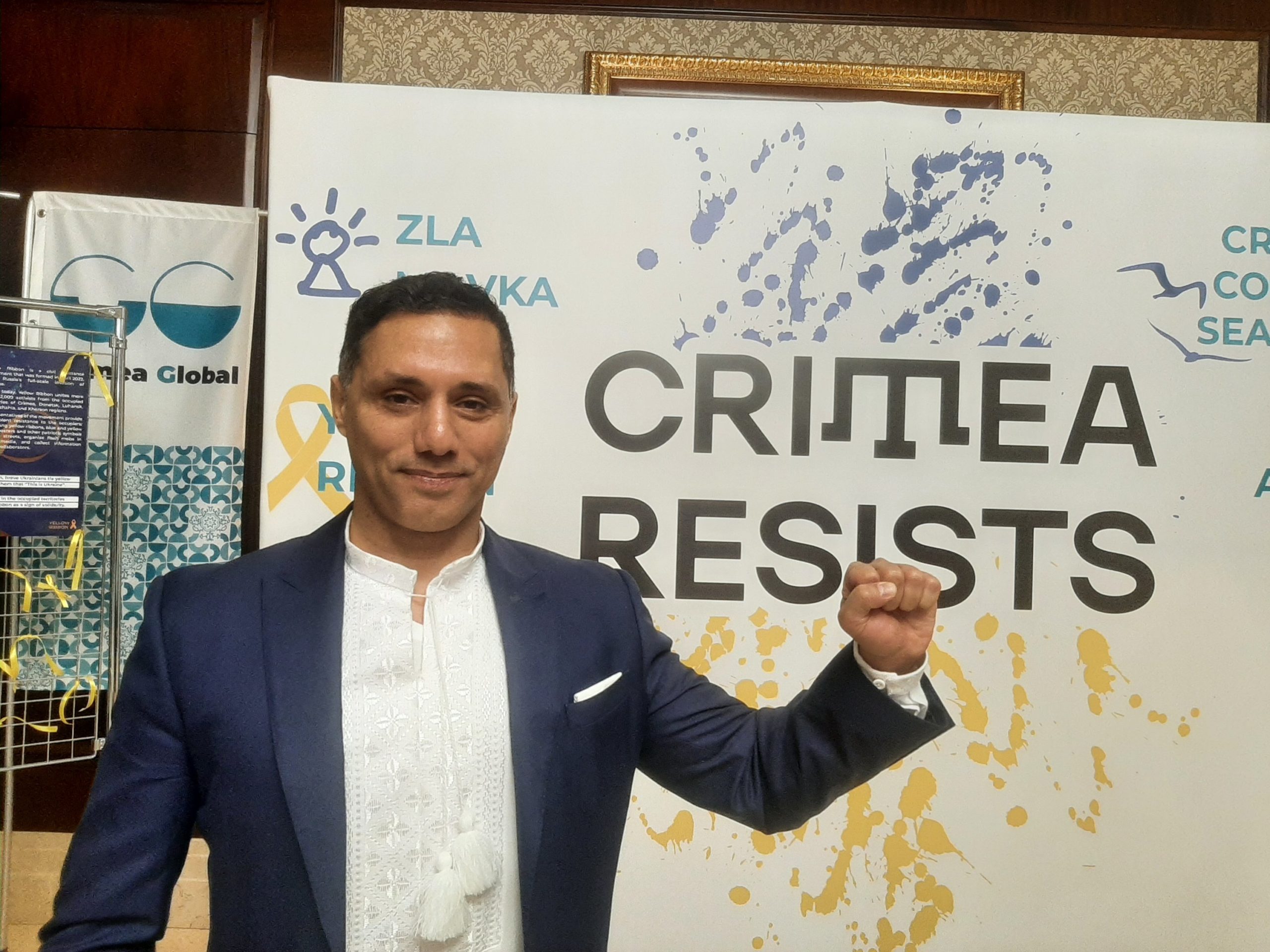 Omar Ashour at the Crimean Global Conference in Kyiv. Photo: Alya Shandra/Euromaidan Press
Omar Ashour at the Crimean Global Conference in Kyiv. Photo: Alya Shandra/Euromaidan PressHow Russia’s military style is similar to ISIS
Please tell us about the similarities between Russia and ISIS, their fighting styles and tactics, and what lessons we can learn from this.
I’ve been coming here since the start of the war in 2014 and have noticed that there are a lot of similarities between how Russia has fought in Ukraine since 2014 and what ISIS and its predecessors, ISI and Al-Qaeda in Iraq, have been doing.
When I was studying Russia’s takeover of Crimea, I looked at what was happening in Syria and Iraq, and the ways that a small outgunned and outnumbered organization managed to somehow control 120 towns between southern Philippines all the way to western Africa, including large cities, like Mosul in Iraq, and smaller cities like Raqqa.
They have done this via a series of infiltrations of senior ranks and false front organizations, where they pretend to be civilians or religious organizations, which act like an ideological front for the armed extremist movement.
Also, via manipulation of religion and a series of very targeted kidnappings and assassinations. All this time, they denied their existence maskirovka-style: “we’re not here, we’re nonexistent in this place.”
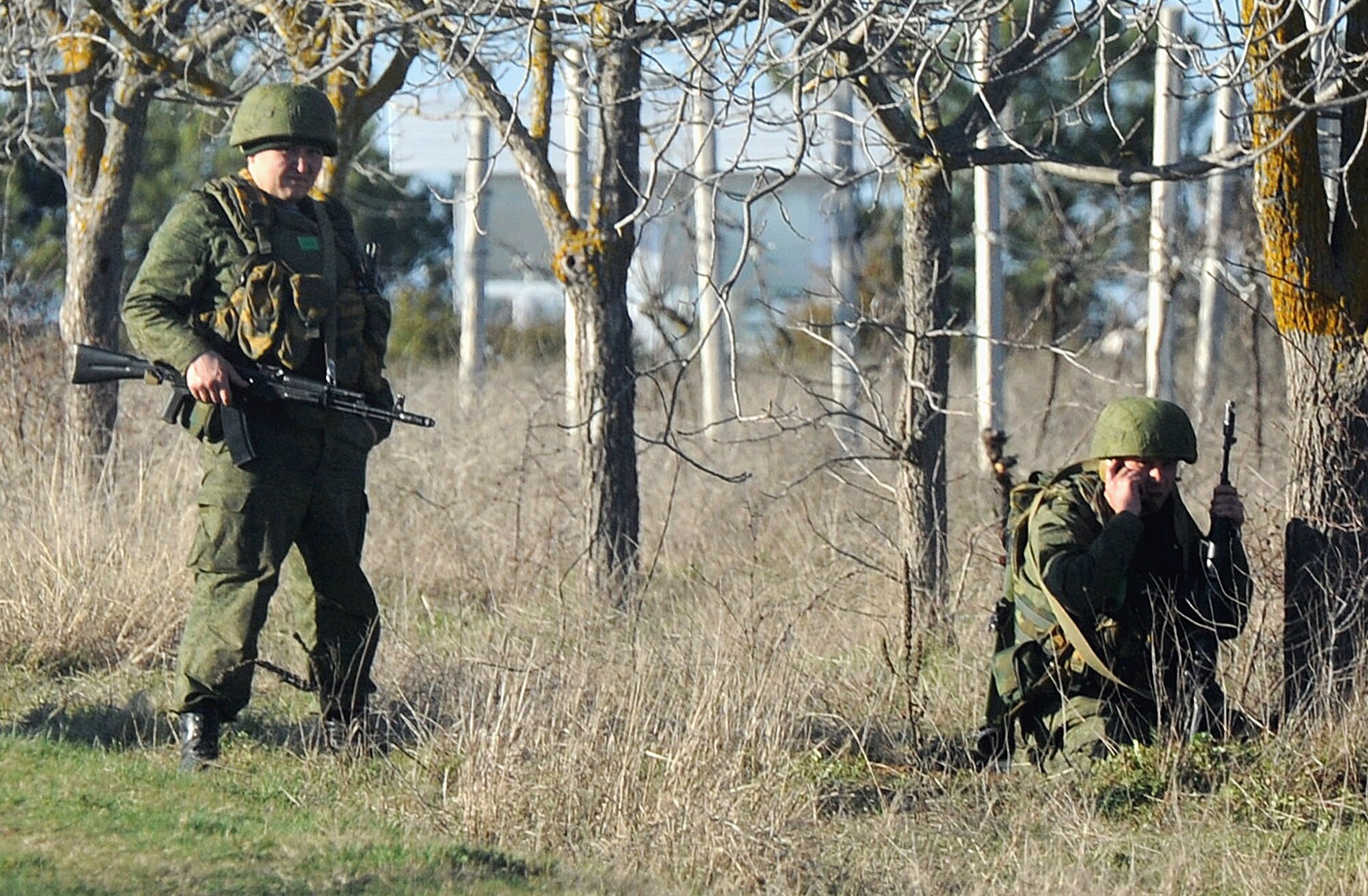 Armed men in uniform, who later turned out to be Russian soldiers stand guard as they block the Ukrainian military airforce aerodrome in Belbek, near Sevastopol on 3 March 2014. Putin only acknowledged that the unmarked military men that occupied Crimea were Russian soldiers in April 2014. Credit: East News/AFP PHOTO/ VIKTOR DRACHEV
Armed men in uniform, who later turned out to be Russian soldiers stand guard as they block the Ukrainian military airforce aerodrome in Belbek, near Sevastopol on 3 March 2014. Putin only acknowledged that the unmarked military men that occupied Crimea were Russian soldiers in April 2014. Credit: East News/AFP PHOTO/ VIKTOR DRACHEVThis was completed with very intense usage of improvised explosive devices (IEDs) in urban terrorism, covering advances and retreats of infantry formations, or even as land torpedoes, but using a human in them. For instance, a five-ton truck with a person driving it, and then blowing himself up becomes a suicide vehicle-borne improvised explosive device, as we call them in military terms.
They usually use very religious rhetoric to recruit and mobilize, even more ideological than religious. They misinterpret history, misinterpret scriptures, take them out of context, and use multimedia to mobilize. Why the mobilization? To replace losses and reconstitute destroyed units. Because they all get killed.
Religious mobilization rhetoric in Russia and ISIS
What is the narrative about? Why is it so powerful?
The narrative has a lot of symbolism and poetry. For instance, they would take Quranic verses from the holy book for Muslims, or episodes of history, or a religious verdict in the 13th century in a very specific context that has nothing to do with the 21st century, and they take all that and bombard people with it via a mix of chants and videos.
They mix Hollywood with 13th-century religious texts and edicts. And it all worked somehow, attracting a tiny minority – tens of thousands out of over a billion Muslims. But even this is strange, because the narrative from a scholarly perspective is very weak. And as well they weaponized issues like sexual violence and rape.
Now take all these batches and try to apply them to Crimea in 2014 and Donbas in 2014-2015, and you see a lot of similarities:
- infiltration;
- denial of existence and no insignias;
- the amount of propaganda and psychological warfare based on a series of false front organizations and bombardment with wrong episodes of history;
- assassinations and kidnappings, including kidnapping people’s children to control and abuse them psychologically.
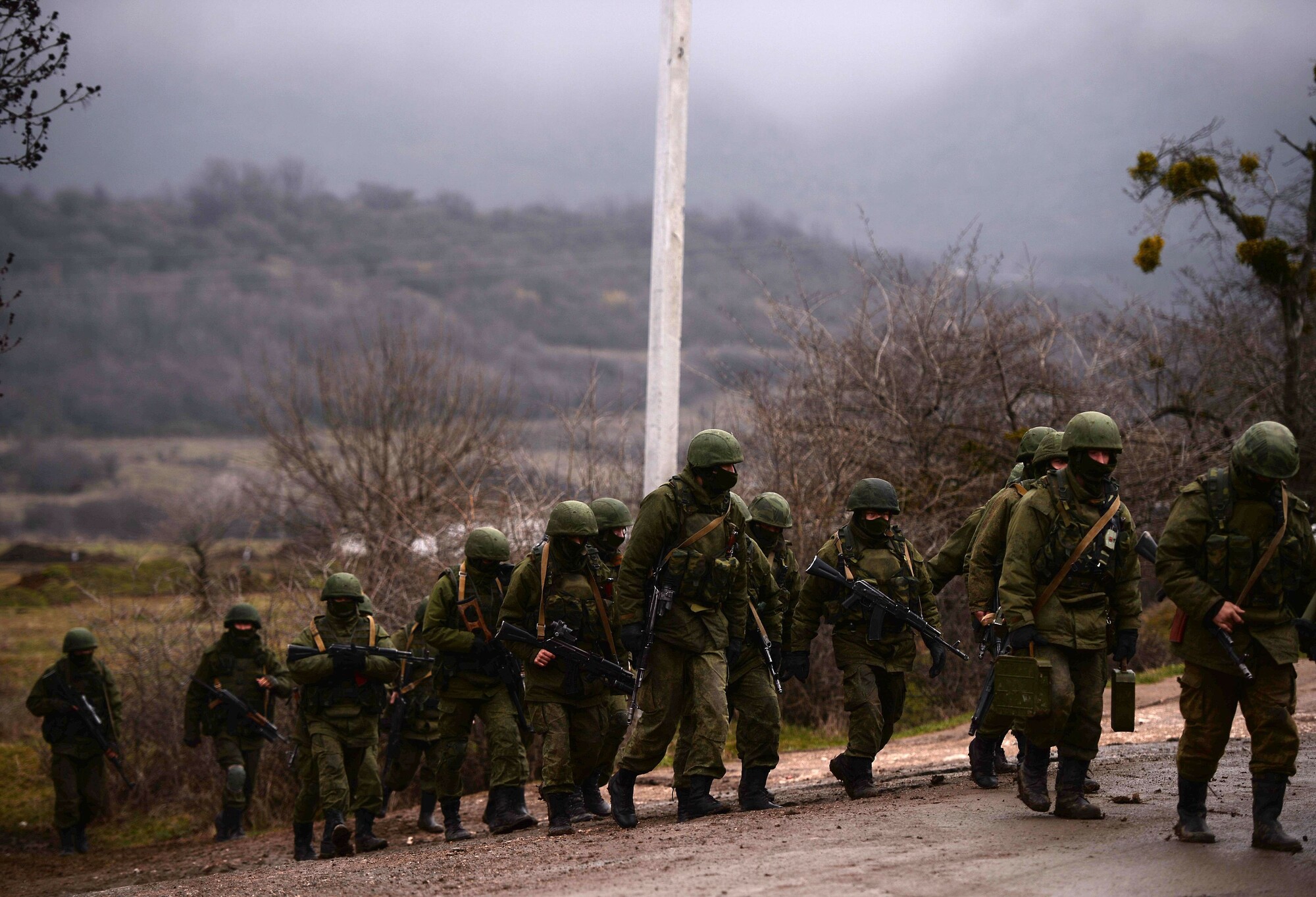 Russian soldiers patrol the area surrounding the Ukrainian military unit in Perevalne, outside Simferopol, on 20 March 2014. Putin would acknowledge these were Russian troops only in April. Credit: East News/AFP/ Filippo MONTEFORTE
Russian soldiers patrol the area surrounding the Ukrainian military unit in Perevalne, outside Simferopol, on 20 March 2014. Putin would acknowledge these were Russian troops only in April. Credit: East News/AFP/ Filippo MONTEFORTEAnd then after that, you see the usage of IEDs, used over 600 times in 2014-2015, including vehicle car bombs and remote-controlled improvised explosive devices. So, all that happened while Russia denied the existence of its troops there.
And then, in Crimea specifically, Russia only moved its troops to secure victory, not attain victory- that’s a very ISIS way of warfare. Victory was attained by these series of terror acts, psychological and information operations, and infiltrations of the ranks.
Of course, the capabilities are very different. Russia has the largest airborne divisions in the world. ISIS does not have that. Russia secured the victory in Crimea with an amphibious and air assault operation, which was very large in the history of East Europe.
ISIS has neither the capabilities nor the capacities, so it needs to rely on makeshift armored vehicles. But still, it’s the same modus operandi if you look at it from a deeper perspective.
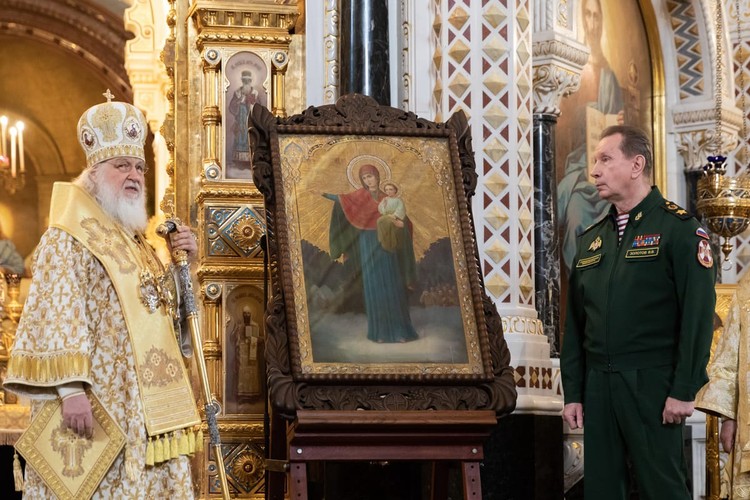 On 13 March 2022, Russian Orthodox Church Patriarch Kirill presented an icon to Russian Army General Viktor Zolotov for it to be hosted in the Russian National Guard’s main church. Zolotov thanked the hierarch and informed him that the National Guard troops are fighting along other regiments in Russia’s war against Ukraine, which Putin called an “operation” to “denazify Ukraine”: “I want to say that yes, not everything is going as fast as we would like, but it’s only because the Nazis are hiding behind civilians, behind the elderly, women, children, arranging firing positions in kindergartens, schools, homes. but we are moving towards the goal step by step and victory will be ours, and this icon will protect the Russian army and accelerate our victory,” Zolotov said. Photo: KP.ru
On 13 March 2022, Russian Orthodox Church Patriarch Kirill presented an icon to Russian Army General Viktor Zolotov for it to be hosted in the Russian National Guard’s main church. Zolotov thanked the hierarch and informed him that the National Guard troops are fighting along other regiments in Russia’s war against Ukraine, which Putin called an “operation” to “denazify Ukraine”: “I want to say that yes, not everything is going as fast as we would like, but it’s only because the Nazis are hiding behind civilians, behind the elderly, women, children, arranging firing positions in kindergartens, schools, homes. but we are moving towards the goal step by step and victory will be ours, and this icon will protect the Russian army and accelerate our victory,” Zolotov said. Photo: KP.ruAdditionally, to mobilize people, you get the highest religious authority in the country, the patriarch of the Russian Orthodox Church, blessing General Zolotov, the weapons, and the soldiers to create religious legitimacy for an occupation of another country, murdering its civilians. Religious blessings for all sorts of violations is a very ISIS way of warfare and mobilization.
To add to this, Russia actually uses it with the Russian Muslims.
In the case of Chechnya, they used the religious credentials of the father of the installed head of the republic, Chechnya’s highest religious authority, to mobilize the Chechens. Now In the case of Chechnya, they used the religious credentials of the father of the installed head of the republic, Chechnya’s highest religious authority, to mobilize the Chechens. Now you see them in the ruins of Mariupol chanting “Allah Akbar.”
How is God great here? You’re on the side of Satan: the killing of so many civilians, the forced deportation, the destruction of one of the richest cities by an invading force…
How do you understand that? Why do they say that God is great, even though they see only signs of destruction? How are they tricked into believing this?
Maybe they believe that Russia is great and God is behind it. The propaganda videos are made primarily to mobilize more and to say this is like a crusade, like we’re doing something very great, so come and join us, and we actually have got God’s legitimacy by chanting these religious slogans.
From what I know from the Chechens, they have many problems mobilizing there. In the Chechen tradition, if your neighbor’s son dies, you should show up to pay respects at the funeral, and it’s a great violation of the Chechen culture not to go. But relatives of Chechens who die in Ukraine don’t show up in their funerals, which is a big deal. It’s a silent protest but also a break with the culture because the majority of Chechens don’t see this as a legitimate war.
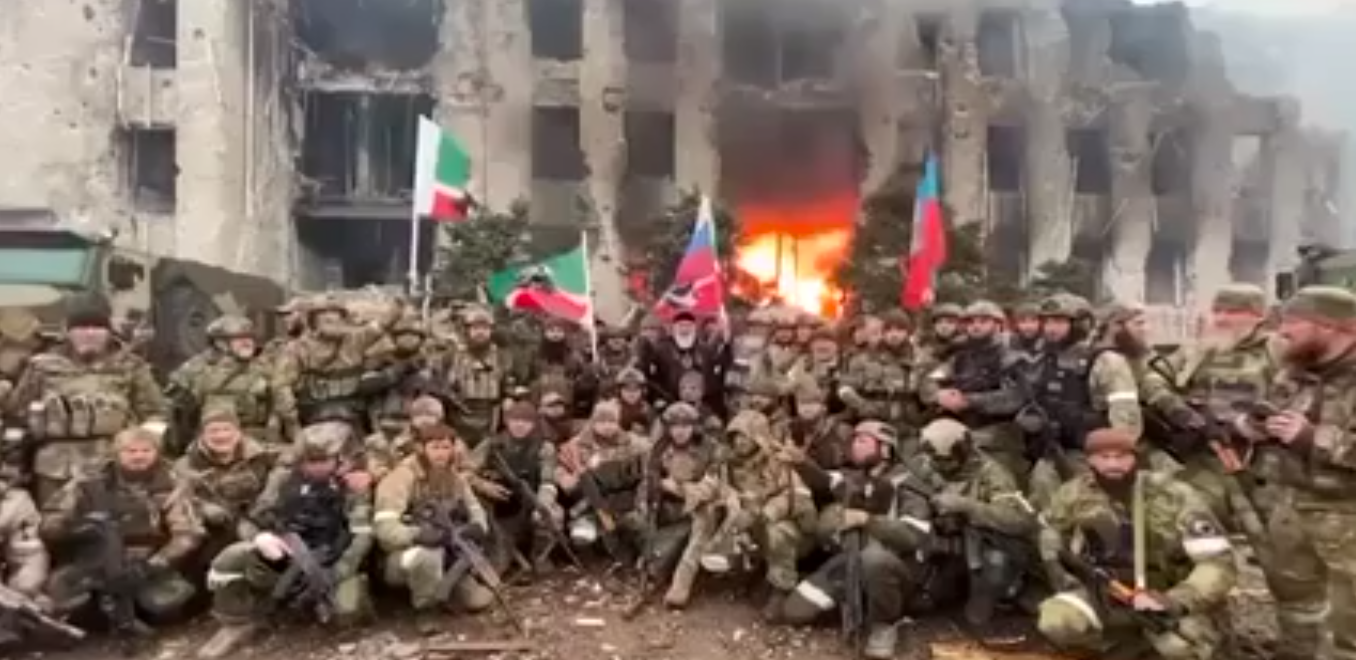
Kadyrov’s troops shout “Allah Akbar” amid the ruins of the Ukrainian coastal city of Mariupol, destroyed in Russia’s siege. Screenshot from video22 April 2022
So, since they have problems mobilizing, they need to use this religious rhetoric, and it’s a very ISIS thing to do because that’s the story of mobilizing in ISIS.
Would you say that the narrative of the “Russian world“ is as successful as ISIS?
I would say it’s less successful. ISIS had no resources; it’s not even a state, so it had to rely on these narratives and propaganda and brainwashing attempts to mobilize.
Russia is a failure in the sense that it has all these resources and can’t do it: people are fleeing the country and staying everywhere from Kazakhstan to Georgia.
The entire force that attacked Ukraine on 24 February 2022 is destroyed, and now you are fighting a new army of mobilized people, like the Storm Z battalions and battalions of convicts first recruited by Wagner and now run by the Ministry of Defence — by itself, a very ISIS thing to do.
ISIS was recruiting from prisons as well, and many of the criminal convicts joined it at some point or another to redeem themselves or to find a higher cause, which is repeated in Storm Z battalions.
Also, there are the so-called “third corps,” civilians mobilized in Russia’s wave of partial mobilization. So, they still have the capacity to mobilize soldiers, and they are a large country of 140 million, but are not as successful as ISIS and I think this will break at some point.
Why Russia fights like ISIS
Why is Russia using these ISIS tactics?
It’s a very cheap and effective way to fight. Let’s compare Crimea 2014 with the attack on Kyiv in 2022.
In 2014, Russia lost one proxy from their so-called self-defense units to invade, occupy, and annex one of the most important geostrategic regions of Ukraine, the Crimean peninsula. A very low cost for a very high reward.
It was very effective because they did it and got away with it. People forget that the majority of the sanctions against Russia happened after MH17 was shot down [on 17 June 2014], mostly because a lot of Europeans were killed, not after the occupation of Crimea itself.
And there was real pressure on Kyiv from its allies, the Obama administration, — I remember very well because I was partly monitoring and partly involved — the UK administration, Obama’s administration, Merkel’s administration, and other European administrations, not to do much: “We will get it back by sanctions and by diplomacy; don’t fight back.”
Ukraine’s first counter-offensive in 2014 that attempted to push Russia back in Donbas and was successful in regaining Kramatorskь Sloviansk, and Mariupol happened by ignoring the allies’ advice.
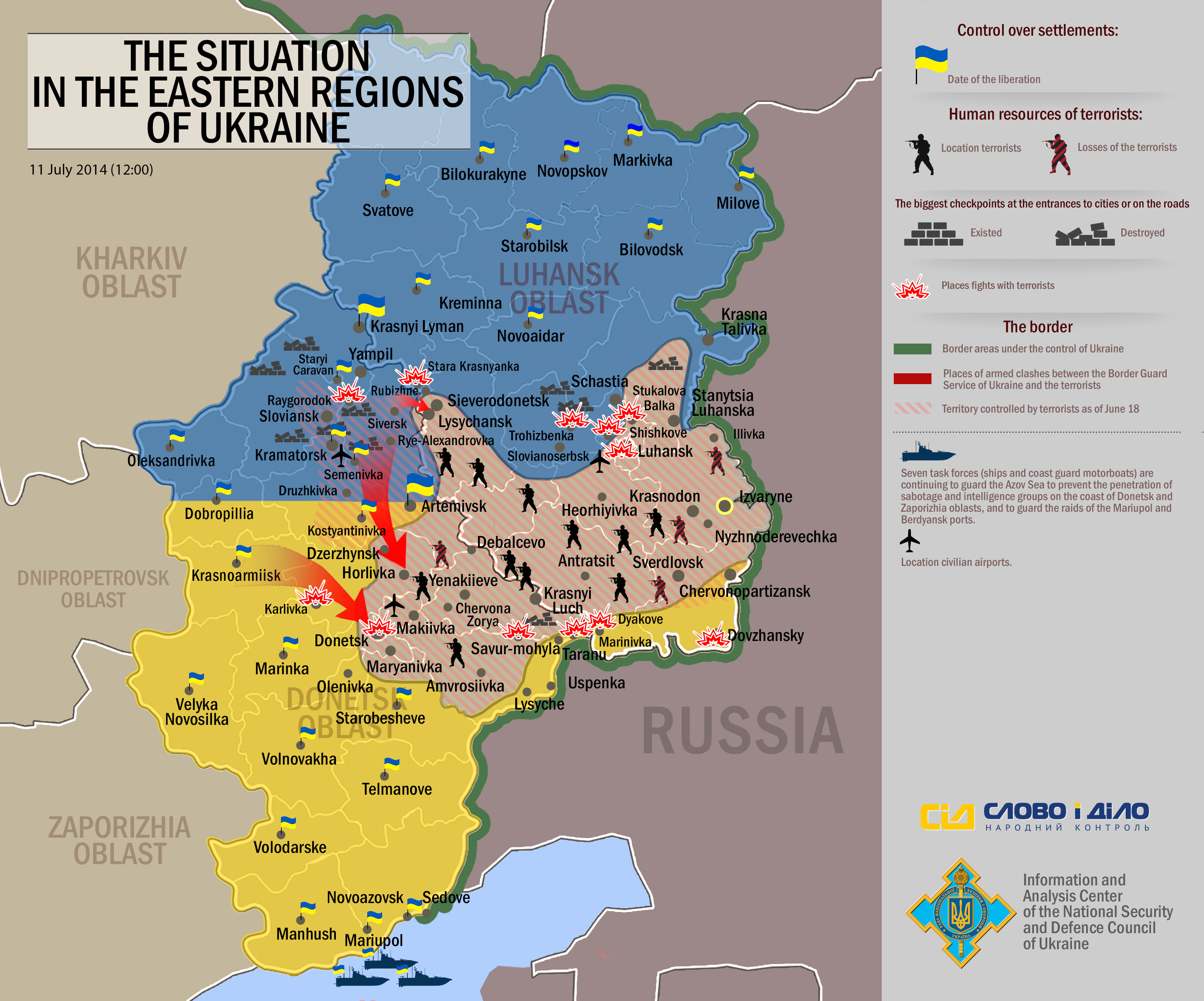
Ukraine’s first counteroffensive pushed back Russian-led forces in eastern Ukraine in the summer of 2014. Credit: Ukraine’s RNBO
I was studying how the smaller, weaker side fights back, so in 2016, I came to Ukraine to study how the Ukrainian counteroffensive of 2014 was pulled off.
By all means, it was a very innovative counter-offensive. The later battles of Ilovaisk and Debaltseve were not victories, but they were very innovative, as was the counter-offensive itself. The armored raid of August 2014 was just amazing. It was the longest armored raid that I know of in the history of warfare led by a paratrooper, General Zabrodskyi, and it was successful in releasing the border guards besieged between the Russian Federation and the Russian-led forces in Ukraine. This was done despite the allies, not with the support of the allies.
So if you count from then, this is the sixth counter-offensive, after the ones in Kharkiv, Kherson, and northern Ukraine in 2022, the one in the summer of 2014, and the one that pushed back Russia’s escalation in Debaltseve in 2015.
Russia does not honor the law of agreements
How do Minsk 1 and 2 fit into this framework of Ukrainian counter-offensives?
They were an attempt to give diplomacy a chance like Europe and, specifically, the Merkel administration wanted. Minsk 1 was signed because the military balance was not on Ukraine’s side, and the Europeans were saying there could be gains from the diplomatic process.
The problem is that since 1991, the Russian Federation did not honor the law of agreements.
In 1991, they accepted all the borders of Ukraine, including Crimea, three times: in Belarus, Kazakhstan, and Russia. At the same time, President Yeltsin said, “if Ukraine went westwards, the Crimea question would be open.”
In 1994, they signed the Budapest Agreement, in which they assured the territorial integrity of Ukraine and vowed to protect it. And then, after that, Minsk 1 and Minsk 2, also assurances that collapsed. There were other talks, including the Normandy talks. None of them were implemented.
Yet, people also forget that in 1997, after the end of the First Chechen War, President Yeltsin signed the treaty “Eternal Friendship of the Russian Federation and the Chechen Republic of Ichkeria.” And then, after invading Chechnya again in 1999, President Putin said that this treaty is not worth toilet paper, publicly threatening the journalist who inquired about it with castration.
My conclusion: if you don’t have enough defense forces or the N-words, NATO or nukes, to defend the negotiated settlement, then it won’t be honored by the Russians.
Fast forward to 2023. What ways do you see out of the war?
It’s very difficult to see how this war ends. But I’m going to put forward some scenarios.
- A Ukrainian military victory. Pushing the Russians, reaching the Azov Sea, making Crimea untenable for the Russians, so they retreat like from Kherson when the logistical supply was hit time after time. Donbas will be more difficult because of the entrenched positions and the border with Russia, with open supply routes. But even with these two scenarios, you can end up with a border war situation and an exchange of fire between Ukraine and Russia as a border war until somebody comes and decides an agreement.
- We get stuck where we are at the moment, with a protracted war, which means you’ll need more supplies and support, solidifying your allies and friendships.
- A change of leadership in Russia, which can happen either with a situation like we saw with Wagner or some oligarchic military coup between some leaders in the Kremlin. This is very rare in Russia, so the scenario is not high.
- People talk about civil resistance campaigns. I don’t see that many of them, but we should not discount the democratic process.
- Or you end up with a Russia that is a proxy to the Chinese, growing more and more dependent because of the resources. In this case, the Chinese would be people to talk to, to pressure. Are the Chinese interested in this war? Do they need it? They are interested, but would want something in exchange. But so far, Russia is not that dependent on them, so they don’t have that much influence.
- Then, we have the worst scenario, which is the Russian advance.
Is that feasible, actually?
I don’t think they have the capacity to mobilize enough well-trained new divisions to launch an offensive potential. They can mobilize men with very limited training to just put them in trenches and to ask them to fire on whatever they see, including their retreating comrades. However, they can sustain defensive position for a while.
Is Ukraine’s potential better?
Ukraine’s potential is much better. I met people from some of the newly mobilized Ukrainian divisions, and what they described doing is extremely impressive, especially since less than a year ago, these soldiers were civilians – salespeople and bank managers.
I’m aware of how difficult offensive combined arms maneuvers are, even on a platoon level: you need to integrate artillery with some air support, mechanized, and motorized infantry.
Yet Ukraine has managed this on the company and battalion level against a competent enemy that had been fortifying defensive positions far longer than many Ukrainian soldiers had even been in the army. What Ukraine has achieved is miraculous by any military analysis.
My only concern is that as the smaller state, Ukraine needs soldiers, men and women, and may lack enough people.
We’re talking here about the Global South [at the Crimea Global Conference – Ed.]. There are hundreds of thousands of tons of Soviet artillery and ammunition in the Global South that need to acquired before Russia gets them. This needs to be addressed.
Deradicalization after liberation of Russian-occupied territories
Okay, and finally, you mentioned that the deradicalization of violent groups after the liberation of territories is a process. What can we learn from other conflicts around the world?
Eventually, Donbas and Crimea will be liberated. However, the younger generation subjected to years of Russian propaganda will need to be addressed and advised. Ukraine can make use of many of lessons of collective deradicalization, i.e. collective transition from violent, possibly terrorist groups towards non-violent activism.
In the case of Ukraine, I recommend non-political, social activism. Charity work, social work, and so on. These processes have been going on for decades in the Global South, and there are many lessons to be learned from countries from Colombia to Iraq to Indonesia in some cases.
Donbas and Crimea will be liberated eventually, but you need to deal with the people, especially the younger generation. The older ones are going to flee, settle in, or retire. But the younger generation, who still have a future ahead of them, have been subjected to a lot of Russian propaganda. Some collaborated with the “LNR” or “DNR” or even joined them in the low ranks. They will need to be deradicalized.
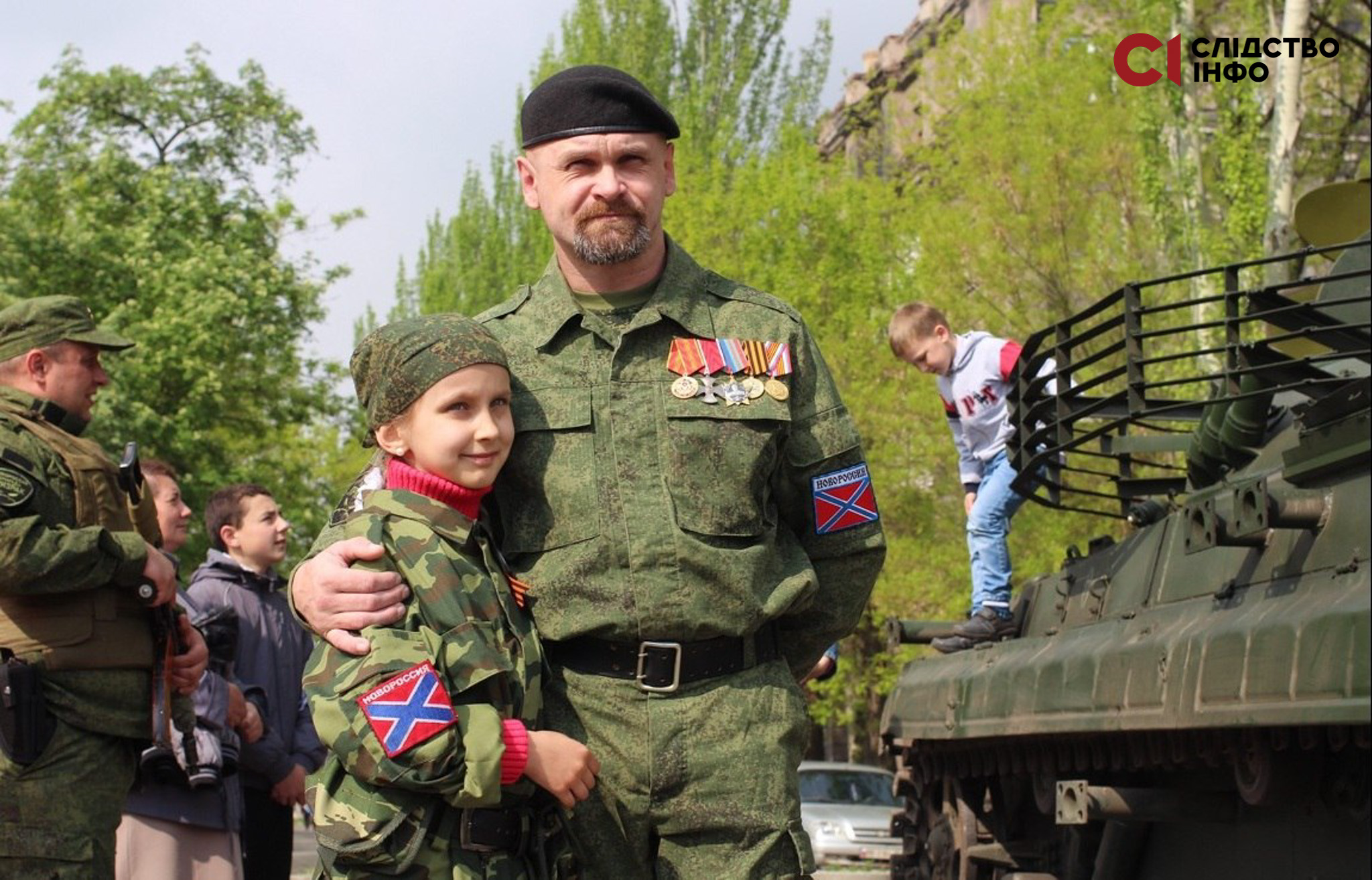
Bohdana Neshcheret aka “Docha,” 9 years old in 2016, with Aleksey Mozgovoi, commander of the Prizrak battalion in the Russian proxy “Luhansk People’s Republic” (“LNR”). Credit: Slidstvo.info
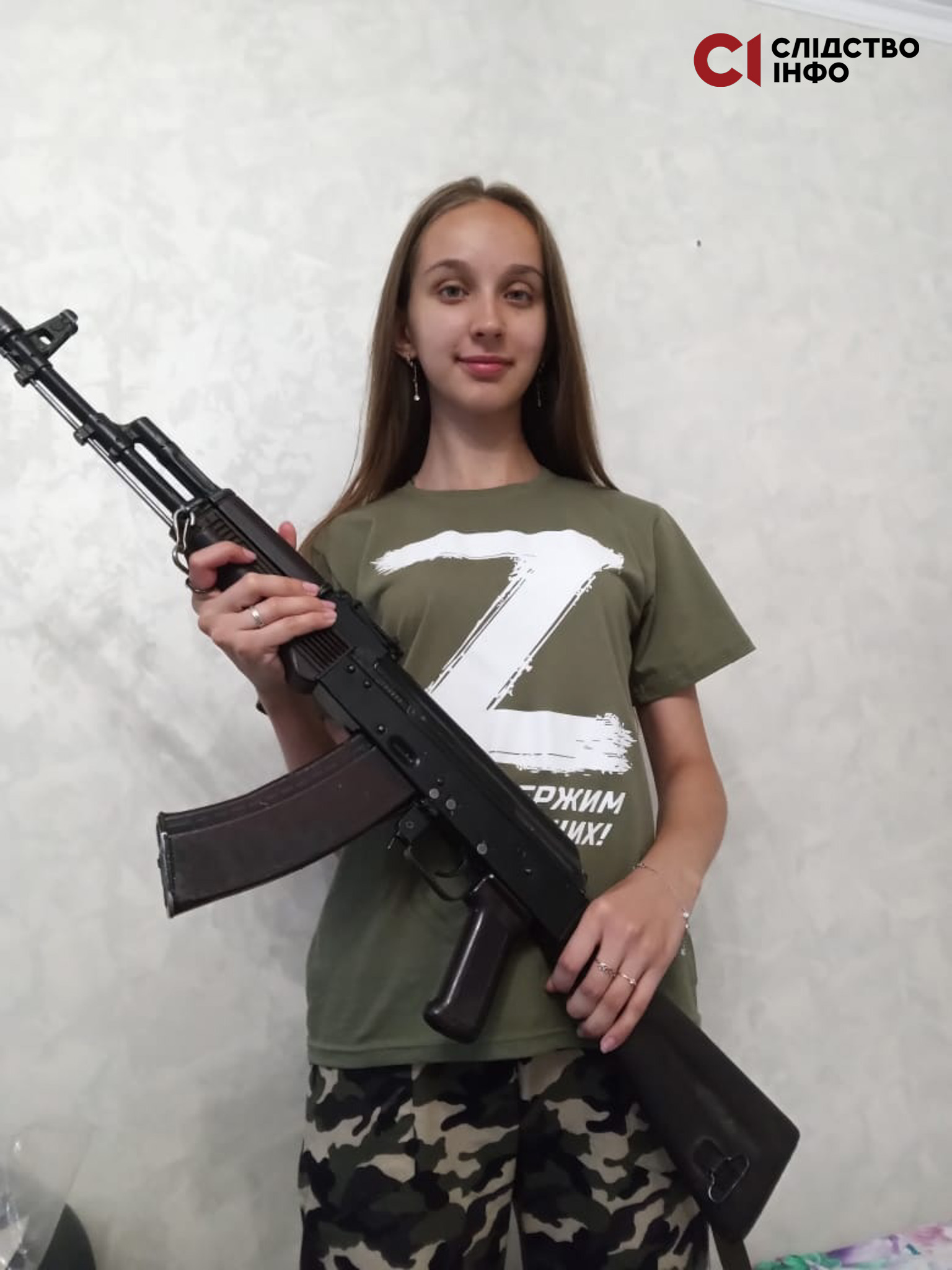
“Docha,” 16 years old in 2023, is now reportedly a private in the Russian proxy Prizrak militant group in occupied eastern Ukraine. Credit: Slidstvo.info
How?
There is no one way to do it. You need to take experiences and tailor them to Ukraine’s very specific context. One way is to set up transitional programs like youth camps, with these programs:
- psychological support;
- education on Ukrainian history and Russia’s actions;
- countering Russian propaganda;
- vocational training to integrate them into Ukrainian society.
You counter Russian propaganda by dismantling it. First, here is the political part; we dismantle it; the historical part about Russia and Ukraine, we dismantle it too.
Then, the socio-psychological part, where they glorify whatever Russia has done. You then show the truth of what Russia has done. Then, the instrumental part. They say, “violence is effective, and if we join Russia, we get a lot of benefits, but if we join Ukraine, there are no benefits.” We also dismantle this.
So, you break the Russian narrative into pieces and address every single dimension in classes and in workshops, and you open it for discussion. They will give you the propaganda; you bring the expert, the academic, or the university specialist, and they break it down.
Also, many of these guys will have no vocational training; they’ve been soldiers since 16 or 18. You must prepare them to integrate in a healthier Ukrainian society in the civil ranks. I would recommend disavowing them from going to politics.
Some countries would make a third dimension – to register as a political activist in a new, legitimate party abiding by the constitution and the laws of the country. But I wouldn’t recommend it because Russia would probably use it to undermine the constitutional order, like they did before.
They will also need to be prepared economically. This will need some funding. Europe has done it before. I was part of the UN counter-terrorism implementation task force, which had funded various de-radicalization activities.
So there is a lot of experience and many donors. Qatar, where I work now, also funded some of these programs before and had their own program. So, this will be the future of Ukraine, and hopefully, it will contribute to bring the country back together in a healthy way.
Ukraine renews Western unity
Anything else you would like to tell our international readers?
I am very proud to be British. I haven’t felt proud to be British since Brexit in 2016. But the British position on Ukraine changed that. I’d like to remind Western and Ukrainian audiences — you brought us together. The UK, Europe, NATO – we were divided, bitter, and angry at one other. We were going down.
People forget: before Ukraine, NATO retreated from Afghanistan when confronted by the Taliban. After 20 years there, it was a complete failure. It was so shameful.
We also had Brexit — 17 million Brits voted to effectively break up the EU for no good reason aside from delusions of superiority. 16 million of us voted against Brexit, myself included, but we still made Putin happy and broke away from the EU.
And we saw severe divisions emerge in the US, with the election of President Trump and then the 6 January insurrection against the Capitol. We faced serious threats to democracy and unity.
But Ukraine brought us back together. We realized we share a purpose – there is an actual reason to unite and fight back. So thank you – I must thank every Ukrainian for reuniting us. From the bottom of my heart, Slava Ukraini!
Heroyam Slava!

